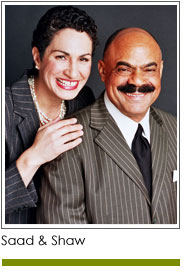 Board service is critical to the success of a college. Critical roles include fundraising and the hiring and evaluation of the president.
Board service is critical to the success of a college. Critical roles include fundraising and the hiring and evaluation of the president.
Dr. Belle Wheelan knows a lot about boards. As a former president she has worked with boards at two different colleges. She has served as a trustee, and currently works with a board in her role as president of the Southern Association of Colleges and Schools Commission on Colleges. In this column she shares her suggestions for how board members can position their president (or CEO) for success, reminding us that success for the president means success for the institution.
First, an ideal board will be made up of a diverse group of individuals, all bringing different areas of knowledge to the table. The board needs diverse collective knowledge and expertise in order to provide oversight and select a president. “You need board members who are more than friends of the college. They need expertise in banking and budgeting and long range planning. Too often their skills are not the reason people are appointed. Too often these are self-perpetuating boards.”
“Boards need to be prepared to welcome a new president into the community. If the board chair lives out of town, the advancement person should be prepared to introduce the new president, but ideally it should be the entire board. The president should absolutely never have to introduce himself or herself to the community.”
As the president finishes his or her first year, it is important for the board to guard against potentially high or unrealistic expectations, and not grade him or her too harshly on her performance. Dr. Wheelan suggests several questions to use when evaluation performance:
• Did you stay in the budget you inherited?
• How informed did you keep the board on what is going on?
• How much money did you raise (if that is an expectation for the first year)?
• How many meetings did you have with people who could make a difference in the budget (if this is an expectation)?
She makes it clear that the board should identify a few things that are measurable and evaluate the president against these. Criteria that should not be used include “she didn’t give me football tickets“ or “I didn’t like his wife’s dress.”
Dr. Wheelan also left us with things the board should avoid. They should not be telling the president how to run the institution. “It is tough when you know how you would do things, and you have to sit back and let the president lead. If you don’t like the way the president is leading then you get a new president. The board is not to lead. Your responsibilities are policy making and fiduciary oversight. Not to go around the president to the staff. The president is the only person who works for you (the board), the staff works for the president.”
We close with these words from the late Dr. Fred Lange, president of the Dallas Community Chest, “No institution can obtain greatness by stumbling over its board.”
Copyright 2016 – Mel and Pearl Shaw
Mel and Pearl Shaw are the authors of Prerequisites for Fundraising Success available on Amazon.com. For help growing your fundraising visit www.saadandshaw.com or call (901) 522-8727.










